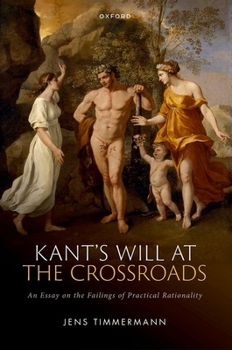Kant's Will at the Crossroads: An Essay on the Failings of Practical Rationality
What happens when human beings fail to do as reason bids? This book is an attempt to address this age-old question within Kant's mature practical philosophy, i.e. the practical philosophy that emerged with the watershed discovery of autonomy in the mid-1780s. As always, Kant is good for a surprise. There is, it is argued, not one answer but two: He advocates Socratic intellectualism in the realm of prudence whilst defending an anti-intellectualist or volitional account of immoral action. This 'hybrid' theory of practical failure is more than a philosophical curiosity. There are ramifications for Kant's theory of practical reason as a whole. In particular, the hybrid account emphasizes the divide between pure and empirical practical rationality to the extent that the latter, while containing practically relevant propositions, no longer counts a branch of practical reason at all. Hypothetical and categorical imperatives exemplify two entirely distinct kinds of normativity. In fact, the dichotomy between pure and empirical determining grounds of the will goes hand in hand with many other dualisms and dichotomies that, whether we like them or not, continue to define Kant's mature ethical thought.
Format:Hardcover
Language:English
ISBN:0192896032
ISBN13:9780192896032
Release Date:December 2022
Publisher:Oxford University Press
Length:188 Pages
Weight:0.99 lbs.
Dimensions:0.7" x 6.4" x 9.5"
Related Subjects
PhilosophyCustomer Reviews
0 rating





